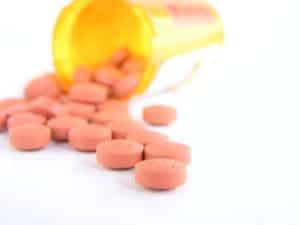Last Updated on October 9, 2024 by The Health Master
Excipient Equation
In the world of pharmaceuticals, ensuring the quality and safety of every component is paramount. Recently, the Drugs Consultative Committee (DCC) of the Union health ministry took a significant step towards enhancing the quality of cough syrups and, by extension, other drug formulations by means of Excipient Equation.
In a meeting convened under the chairmanship of the Drugs Controller General of India (DCGI) Dr Rajeev Singh Raghuvanshi, the committee made crucial recommendations to address the quality concerns surrounding excipients, especially propylene glycol.
DCC’s Recommendations and Pharma Grade Excipient Equation

The DCC, recognizing the importance of adhering to the Drugs and Cosmetics Act, emphasized that only pharma grade excipients should be utilized in the manufacturing of drugs maintaining Excipient Equation.
This recommendation stems from a deep concern about the quality of excipients, a concern that has been echoing in the pharmaceutical industry for some time.
Advisory to State Licensing Authorities
To ensure the enforcement of this recommendation, the DCC suggested issuing an advisory to all State Licensing Authorities (SLAs).
This advisory would direct manufacturers under their jurisdiction to use only pharma grade excipients when formulating drugs.
The emphasis here is not only on making the recommendation but also on ensuring its implementation through regulatory bodies.
Formation of a Sub-Committee
Understanding the complexity of the issue, the committee proposed the formation of a sub-committee.
This sub-committee’s primary task would be to examine the matter thoroughly and provide a comprehensive report within three months.
This strategic move showcases the committee’s commitment to a detailed understanding before suggesting any regulatory interventions.
Observations on Risk-Based Inspections

The DCC, in its 62nd meeting held in hybrid mode at the end of September 2023, noted the findings from risk-based inspections.
Importantly, it was observed that excipients like glycerin and propylene glycol were being imported as industrial grade.
This poses a significant risk, especially when supplied by traders not licensed under the Drugs and Cosmetics Act, to pharmaceutical manufacturing units.
International Implications and DCGI’s Directives

The international ramifications of using substandard excipients were brought to light.
The DCGI, in response, directed the industry not to purchase propylene glycol from a specific supplier due to concerns about its standard quality.
The impact on the reputation of Indian manufacturers in export markets was noted, signaling potential economic consequences.
Adulteration Concerns and Regulatory Gaps
Reports of adulteration in pharmaceutical excipients, such as gelatin imported from China, raised further alarms.
The lack of regulations specifying maximum limits of toxic compounds in industrial-grade gelatin underscored a regulatory gap.
The DCC recognized the importance of controlling pharmaceutical excipients’ quality specifications due to their direct use in the manufacturing of formulations.
Industrial-Grade IPA Usage and Rule Clarifications
The article delves into the usage of industrial-grade IPA (isopropyl alcohol) in the pharmaceutical industry.
Despite a substantial consumption of IPA, only a small percentage meets pharmacopoeia criteria.
The potential hazards associated with using industrial-grade IPA, which lacks critical parameters covered in pharmacopeia standards, were highlighted.
Clarifications were provided on import registration for inactive bulk substances, exempting certain substances not intended for medicinal use.
Dual Use NOCs and Drug Definition
The Committee addressed the inclusion of excipients in Dual Use NOCs issued by the Central Drugs Standard Control Organisation (CDSCO).
It emphasized that excipients, when imported under Dual Use NOCs, should be strictly used for non-medicinal purposes.
The broader definition of “Drug” under the Drugs and Cosmetics Act, 1940, was discussed, highlighting that it includes all substances intended for use as components of a drug, necessitating a manufacturing license and compliance with Good Manufacturing Practices (GMP).
Impact on Public Health
The article concludes by emphasizing the far-reaching consequences of using substandard excipients on public health.
It recaps the key recommendations and observations, stressing the urgent need for regulatory interventions to maintain pharmaceutical quality.
FAQs
- What are excipients, and why are they important in pharmaceuticals?
- Excipients are inactive substances in a drug formulation that serve as carriers for the active pharmaceutical ingredient. They play a crucial role in drug delivery, stability, and overall efficacy.
- How does the quality of excipients impact the pharmaceutical industry internationally?
- Poor quality excipients can lead to accusations from international health organizations and importing countries, affecting the reputation of the pharmaceutical industry and potentially impacting export markets.
- Why is the usage of industrial-grade IPA hazardous in pharmaceutical applications?
- Industrial-grade IPA lacks critical parameters covered in pharmacopeia standards, posing risks to the quality of drugs. Its usage can adversely affect the health and safety of consumers.
- What regulatory measures are being recommended to address the issues with excipients?
- The Drugs Consultative Committee recommends strict enforcement of using only pharma grade excipients, issuing advisories to State Licensing Authorities, and forming sub-committees for comprehensive examinations.
- How does the Drugs and Cosmetics Act define and regulate substances intended for use as components of drugs?
- The Act has a broad definition of “Drug,” including all substances intended for use as components of a drug. It mandates a manufacturing license and compliance with Good Manufacturing Practices for these substances.
Disclaimer: This article contains information derived from the source mentioned below. Our team utilized an AI language model to rewrite and present the news or article in a unique format.
Govt Job: For Research Scientist in CDSCO, Pay upto Rs. 84k pm
Pharma Innovation in India: A Call to Action – DCGI
Pharma Company Faces Environmental Crisis
Transforming Clinical Research Sector in India
Indian Pharma Industry Faces Regulatory Scrutiny
Drug alert: 61 out of 1105 samples declared as NSQ in October 2023
National Pharmacy Commission Bill 2023: A Critical Examination
USFDA Approval granted for Generic Dapagliflozin Tablets











